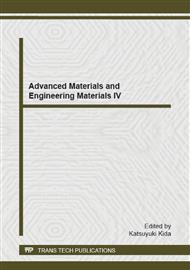p.511
p.517
p.521
p.525
p.529
p.535
p.541
p.547
p.551
Study on Multi-Objective Optimization of Hybrid Flow Shop Scheduling Problem
Abstract:
Due to several mutual conflicting optimized objectives in the hybrid flow shop scheduling problem, its optimized model, including three objectives of make-span, flow-time and tardiness, was firstly set up, instead of the single optimized objective. Furthermore, in order to improve the optimized efficiency and parallelism, after comparing the normal multi-objective optimized methods, an improved NSGA-II algorithm with external archive strategy was proposed. Finally, taking a piston production line as example, its performance was tested. The result showed that the multi-objective optimization of hybrid flow shop scheduling based on improved NSGA-II provided managers with a set of feasible solutions for selection in accordance to their own preference. Therefore the decision could be made more scientific and efficient, and thus brings to the factory more economic benefits.
Info:
Periodical:
Pages:
529-534
DOI:
Citation:
Online since:
December 2014
Authors:
Price:
Сopyright:
© 2015 Trans Tech Publications Ltd. All Rights Reserved
Share:
Citation:


